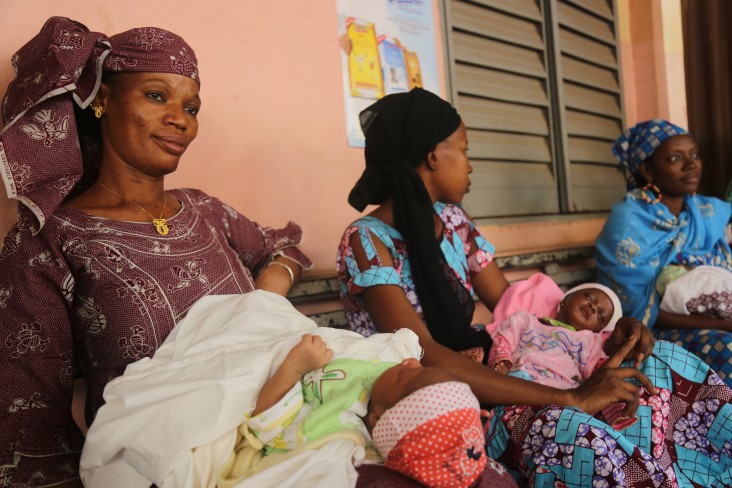Speeches Shim

“We welcome this initiative in our health centers because health and cleanliness go together. When the first inspection showed deficiencies in our center, our technical team developed a plan of action that we executed to the letter. All the expressed needs were met. ” Bassidiki Baba Toure, Vice-President of the management community administrative counsel
In Mali, hygiene and sanitation conditions at the health facility level are precarious; hygiene practices are not routine and health centers lack access to appropriate water and sanitation infrastructure. These shortcomings impact the quality of care and the infection rate. Moreover, they can adversely affect both clients and caregivers. To improve water, sanitation and hygiene (WASH) conditions in health facilities, the USAID Health High Impact Health Services Project (SSGI) supported the Bamako Health Department to introduce the Clean Clinic Approach in 2017 that included a clean clinic competition whereby health centers were scored against a checklist of key activities that improve WASH conditions.
Asacodrab community health center participated in the clean clinic competition. After the first WASH inspection revealed shortcomings, the community health center developed its action plan to improve their facility’s WASH conditions. The clinic appointed a health officer to conduct a daily WASH inspection; trained all staff on biomedical waste management and sanitation; recruited an additional cleaner; involved women's user committee in addressing hygiene and sanitation and incentivized cleaners (via a “bonus”) to be more committed to their work. The center also purchased small WASH inputs such as trash bins, cleaning gloves, soap and chlorine for all units and installed a handwashing station in each unit. In 2018, the health center and its management committee also self-funded and installed a water tower costing approximatively $5,666.66 USD to ensure the permanent availability of water; financed the purchase of a generator $14,000 USD to ensure permanent functionality of the water tower and the electrification of the center in case of power failure; and constructed a site to store garbage before it is collected.
The actions undertaken by the health center’s management committee and leadership have positively improved the WASH conditions of the structure, resulting in strengthened WASH equipment. The premises are much cleaner, the staff is managing biomedical waste appropriately, the working conditions and quality of services have improved and this has resulted in increased satisfaction of both the staff and the clients. These actions enabled the facility to achieve clean clinic status during the second and third inspections.
“This approach is a good initiative that encourages health facilities to improve. Health is not possible without hygiene. The health center’s management committee built a water storage tank and a place to store garbage before being collected. They provided us with WASH material and help monitor hygiene. We now sort waste correctly. The management committee has met many needs that we have expressed. My staff is so much more comfortable with these working conditions. The hygiene of our center has improved a lot thanks to the competition and our clients express their satisfaction. I encourage and congratulate our cleaners for their outstanding work”, explained the medical director. The Vice-President of the management community administrative council, Bassidiki Baba Toure added: “Every day I check all corners of all units and if I see anomalies either I call the staff or correct the problem myself. My staff and I are committed to continuing to work to improve the quality of our services for the total satisfaction of the population we serve.”
As part of this competition, SSGI Project supported the training of 58 basic emergency obstetric and neonatal centers and six comprehensive emergency obstetric and neonatal centers in WASH and infection prevention control. The project then launched the competition, provided biomedical waste management equipment and supported the department of health to conduct inspections and monitoring.
The SSGI is a five years program of US$ 46.7 million aiming to reduce or eliminate maternal, newborn, and child deaths in Mali. The project is implemented in five regions ― Kayes, Koulikoro, Sikasso, six communes of Bamako and Gao district. It provides support to 37 district hospitals, 809 primary health facilities and approximately 6,900 villages. It works with 1597 community health workers and more than 20,000 community volunteers.

Comment
Make a general inquiry or suggest an improvement.